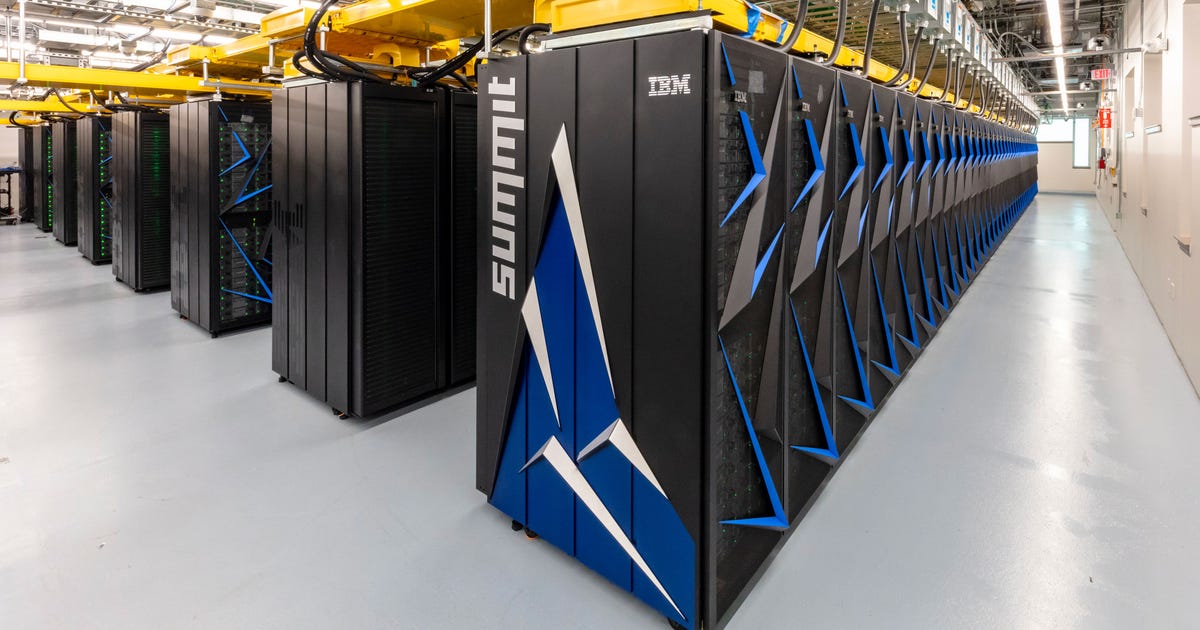Supercomputer Researcher Wins Turing Award for Boosting Ultrapowerful Machines - CNET - 4 minutes read

Jack Dongarra, a researcher at Oak Ridge National Laboratory in Tennessee, won the 2021 Turing Award for software that's unlocked the power of the world's biggest computers. Many earlier recipients boosted supercomputers indirectly, but Dongarra has specialized in code that speeds up scientific calculations and gets it to run on machines with thousands of processors.
"These contributions laid a framework from which scientists and engineers made important discoveries and game changing innovations in areas including big data analytics, health care, renewable energy, weather prediction, genomics and economics," the Association for Computing Machinery said Wednesday of its choice to name Dongarra the winner. The prestigious award, which has come with $1 million from Google since 2014, is often called computing's equivalent of the Nobel Prize.
The award comes as supercomputing takes on increasing importance in understanding the world and dealing with its challenges. Supercomputers are often used to forecast both next week's weather and the course of climate change over the next decades. They're deployed to simulate the high-energy physics of aging nuclear weapons and fusion reactors scientists hope will mean abundant electricity in the future. Industry uses the enormously powerful machines to design aircraft that are more efficient.
Good software is critical to make use of sprawling supercomputing hardware that these days is composed of thousands of machines with millions of processing cores. Dongarra wrote algorithms that sped up the algebraic calculations at the heart of most scientific computing. He also helped develop a message passing interface, known simply as MPI, that's required to spread a single computing job across thousands of processors.
Dongarra currently works at Oak Ridge, home of the IBM-built Summit machine that was the world's fastest supercomputer for two years until Japan's Fugaku claimed the crown. The Energy Department lab also hosts the Frontier machine, which could bring that crown back when it begins full operations in 2023.
"I'm still in shock over getting the news about the award, to be honest," Dongarra, who has authored papers with previous Turing winners, said in an interview. "It's a great honor and I'm humbled."
Since 1966, the ACM has given the Turing Award to computer science's biggest luminaries. Recipients' research paved the way for every commercial success in the industry, from IBM PCs and Apple iPhones to Google search and the Call of Duty video game.
Previous Turing Awards went to inventors of the encryption technology that protects communications and e-commerce, the chip design used in every mobile phone, the World Wide Web, the graphical user interface on personal computers, today's artificial intelligence technology and the Unix operating system.
These days, Dongarra is intrigued by new trends in supercomputing. One is cloud computing services that let anyone rent access to enormous systems. Another is artificial intelligence technology, which he thinks can be useful for rapidly finding approximate solutions that later can be verified with traditional means.
In the 1970s, Dongarra began one important software project, Linpack, to help researchers solve linear equations more easily on a variety of computers. He kept a list of how well various machines performed, including famed machines like the Cray-1 supercomputer and workaday minicomputers like Digital Equipment Corporation's PDP-8.
That list, when combined with a related one from Hans Mayer of the University of Mannheim, became the Top500 supercomputer rankings that have been released twice each year since 1993.
Linpack has shown remarkable longevity, in part because it's been updated many times as supercomputers evolved to encompass new technologies -- for example, clusters of cheaper Linux machines starting in the 1990s, graphics processing units from companies like Nvidia over the last decade and now AI accelerators to speed machine learning tasks.
But for measuring speed, it's time for Linpack's reign to end, Dongarra said.
"We need new benchmarks," he said. Modern machines are more constrained these days by their ability to shuttle data internally. Dongarra prefers the more recent HPCG speed test, which the Top500 also reports.
Source: CNET
Powered by NewsAPI.org